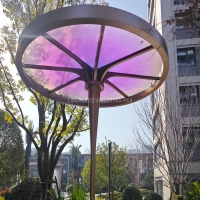Welcome to the website for landscape facilities products and knowledge.
What are the challenges of sourcing ethically produced materials for landscape tables?
Sourcing ethically produced materials for landscape tables presents several challenges that designers and manufacturers must navigate. One major hurdle is ensuring supply chain transparency, as verifying the origins of materials like reclaimed wood or recycled metals often requires rigorous certification processes. Additionally, ethically sourced materials tend to be more expensive, posing cost barriers for businesses aiming to balance sustainability with affordability. Limited availability is another issue, as not all regions have access to certified sustainable resources, leading to longer lead times and logistical complexities.
Another challenge lies in maintaining quality and durability while adhering to ethical standards. For instance, sustainably harvested wood may require specialized treatments to withstand outdoor conditions, adding to production costs. Consumer awareness also plays a role—many buyers prioritize aesthetics and price over ethical sourcing, making it harder for brands to justify higher investments in sustainable materials.
Despite these obstacles, innovative solutions like local sourcing, partnerships with certified suppliers, and using alternative materials (e.g., bamboo or recycled plastics) can help overcome these challenges. By addressing these issues, the furniture industry can move toward a more sustainable future without compromising on design or functionality.
Related search:

Recommendation
Metal frame with gradient color acrylic combined with high-end shading landscape facilities